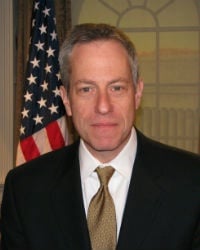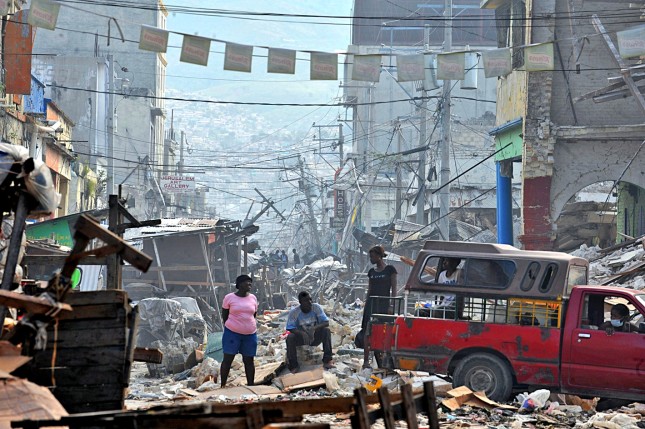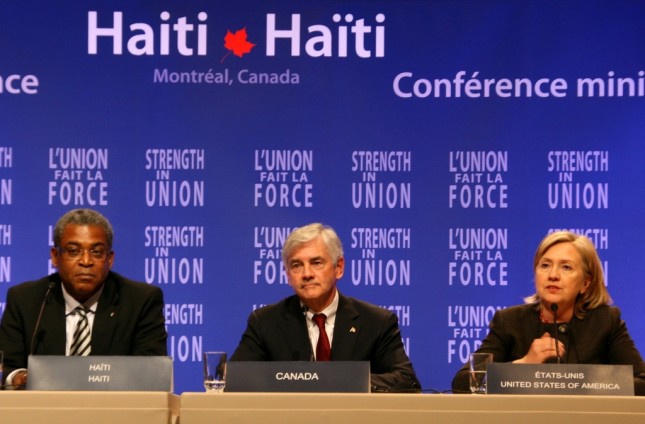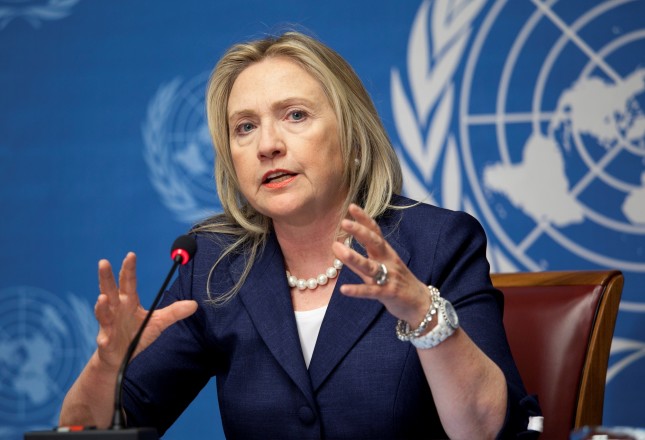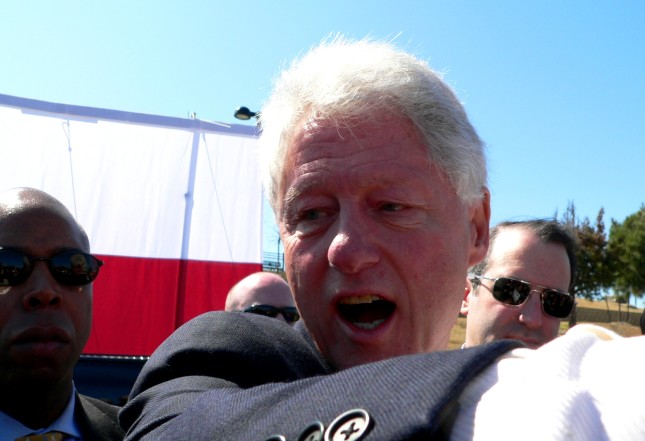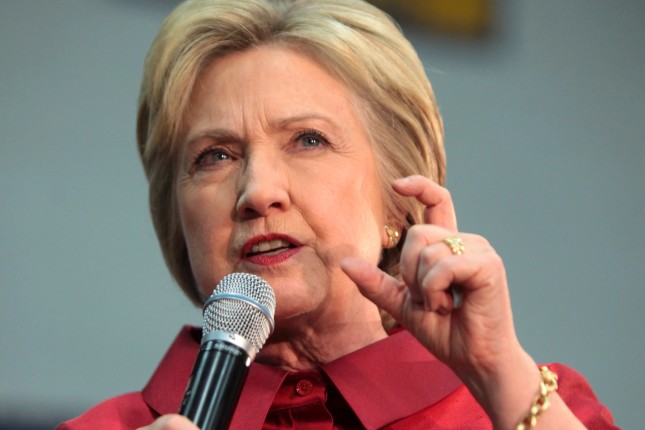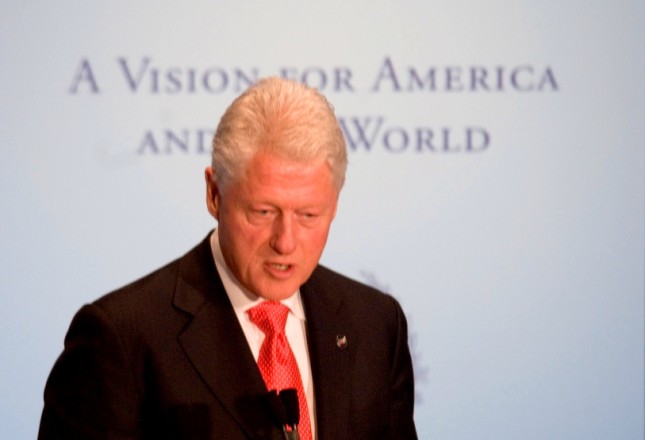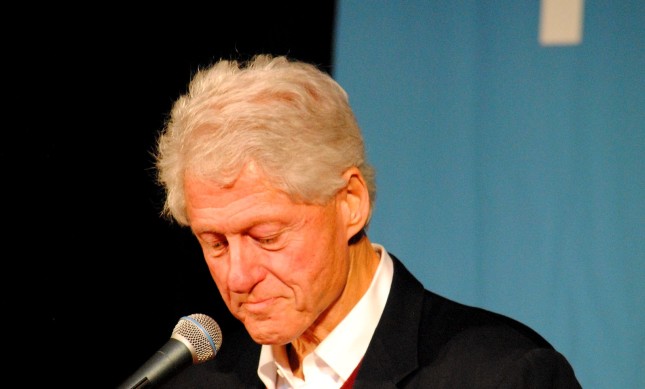Foto : El presidente de El Salvador, Salvador Sánchez Cerén
A raíz de los eventos suscitados en Brasil, que culminaron el pasado 12 de mayo con la suspensión de la Presidenta Dilma Rousseff y con el anuncio de las primeras medidas por parte del nuevo gabinete brasileño, las autoridades de El Salvador han decidido no reconocer a las actuales autoridades en Brasil y retirar a su representante en la capital brasileña (ver nota de prensa de Elpais.cr).
En años recientes, posiciones similares fueron adoptadas por parte de algunos Estados de América Latina con relación al repentino cambio de autoridades en Honduras acaecido en junio del 2009, las cuales fueron confortadas por el mismo Consejo Permanente de la OEA en la resolución CP/RES. 953 (1700/09) del 29 de junio del 2009. En este texto, los Estados miembros de la OEA acordaron:
“1. Condenar enérgicamente el golpe de estado llevado a cabo en la mañana de hoy en contra del Gobierno constitucional de Honduras y la detención arbitraria y expulsión del país del Presidente Constitucional José Manuel Zelaya Rosales que produjo una alteración inconstitucional del orden democrático.
2. Exigir el inmediato, seguro e incondicional retorno del Presidente José Manuel Zelaya Rosales a sus funciones constitucionales.
3. Declarar que no se reconocerá ningún gobierno que surja de esta ruptura inconstitucional”.
El cambio de autoridades ocurrido en Paraguay en junio del 2012 llevo, entre otras acciones, al retiro de algunos embajadores latinoamericanos en Asunción y a la suspensión de Paraguay como miembro del MERCORUR por parte de los integrantes de esta organización subregional. El 3 de julio del 2012, en el marco de la Cumbre de Mendoza, se adoptó una “decisión sobre la suspensión del Paraguay en el MERCOSUR en aplicación del protocolo de Ushuaia sobre compromiso democrático” (ver texto integral ), en la que los Estados miembros del MERCOSUR decidieron:
“1.- Suspender a la República del Paraguay del derecho a participar en los órganos del MERCOSUR y de las deliberaciones, en los términos del artículo 5° del Protocolo de Ushuaia.
2.- Mientras dure la suspensión, lo previsto en el inciso iii) del artículo 40 del Protocolo de Ouro Preto se producirá con la incorporación que realicen Argentina, Brasil y Uruguay, en los términos del inciso ii) de dicho artículo,
3.- La suspensión cesará cuando, de acuerdo a lo establecido en el artículo 7° del Protocolo de Ushuaia, se verifique el pleno restablecimiento del orden democrático en la parte afectada. Los Cancilleres mantendrán consultas regulares al respecto”.
Como se puede apreciar, estas crisis políticas internas recientes del 2009 y del 2012, que algunos analistas denominaron “golpes de Estado constitucionales” (ver por ejemplo este artículo que refiere a esta expresión en su mismo título), han ocupado la agenda diplomática en el hemisferio. Al igual que lo hicieran los golpes de Estado (por definición “anticonstitucionales” en la medida en que se dan en el marco de una ruptura del orden constitucional) que sacudieron a América Latina en décadas anteriores.
Los comunicados oficiales previos al de El Salvador
El comunicado oficial de El Salvador es el penúltimo comunicado oficial registrado sobre la situación en Brasil, antecedido por los de otros Estados, que nos ha parecido oportuno mencionar y uno posterior de Costa Rica. Nos limitaremos únicamente a reproducir el contenido de estos comunicados oficiales, así como las respuestas (igualmente oficiales) dadas por Brasil, de manera que el lector pueda hacerse una idea de cómo cada Estado aprecia la situación interna en Brasil y busca la manera de expresar su preocupación y algún tipo de solidaridad.
Distinguiremos a los Estados que son vecinos de Brasil de los demás, en la medida en que la cercanía geográfica, las relaciones comerciales, las vías de comunicación, la existencia de proyectos conjuntos y algunos otros aspectos que una contigüidad territorial conlleva pueden (a veces) resultar relevantes a la hora de elaborar un comunicado de esta naturaleza.
Estados vecinos de Brasil
El pasado 12 de mayo, Argentina (cuyo actual Presidente se reunió con la Presidenta Dilma Rousseff a pocos días de asumir sus funciones), se había expresado mediante un comunicado oficial de su cancillería de manera escueta (y un tanto prudente) en los siguientes términos que reproducimos textualmente: “Jueves 12 de Mayo de 2016. Sobre la situación en Brasil. Información para la Prensa N°: 135/16. Ante los sucesos registrados en Brasil el Gobierno Argentino manifiesta que respeta el proceso institucional que se está desarrollando y confía en que el desenlace de la situación consolide la solidez de la democracia brasileña. En tal sentido el Gobierno Argentino continuará dialogando con las autoridades constituidas a fin de seguir avanzando con el proceso de integración bilateral y regional“.
El mismo 12 de mayo, Paraguay, emitió un comunicado aún más corto (y más cauto): “Comunicado de Prensa. El Gobierno de la República del Paraguay ha respetado en todo momento el proceso institucional que se está desarrollando en la República Federativa del Brasil, confiado en la plena vigencia del Estado de Derecho y el normal funcionamiento de las instituciones democráticas. En tal sentido, expresa que proseguirá normalmente el relacionamiento con la hermana República Federativa del Brasil, como socio estratégico, en el proceso de integración bilateral, regional y multilateral”.
A diferencia de Paraguay, el viernes 13 de mayo, la misma Argentina circuló un segundo comunicado en el que remitió a declaraciones de su Ministra de Relaciones Exteriores (ver texto integral reproducido al final de esta nota – Documento 2) en las que la jerarca de la diplomacia argentina expresaba que: “Si bien se puede argumentar que la legalidad está cumplida, hay muchos que tienen una seria cuestión respecto de la legitimidad del proceso. Entonces, cuando uno empieza a debatirse entre la legalidad y la legitimidad, se pone en una situación muy compleja. Lo que nosotros esperamos es que esto concluya, para que no se acentúen las necesidades y las ansiedades del pueblo brasileño”.
Por su parte, otro vecino de Brasil, Bolivia se expresó en un comunicado del 12 de mayo en los siguientes términos:
”El Gobierno del Estado Plurinacional de Bolivia, luego de conocer la decisión del Senado Brasilero que aprobó el inicio de un juicio político en contra de la Presidenta Dilma Rousseff, en base a una “farsa jurídica y política”, expresa su profundo rechazo a estas acciones que pretenden desestabilizar los procesos democráticos y desconocer la voluntad de los pueblos expresadas en el voto popular.
Este proceso de destitución presidencial, calificado por la presidenta Rousseff como un “Golpe de Estado”, se basa en la “criminalización de acciones administrativas” que no ameritan responsabilidad alguna, según las propias leyes brasileras. Esto demuestra una intención de dañar la democracia en un país hermano como el Brasil y desconocer los 54 millones de votos que llevaron a Dilma Rousseff a la presidencia.
El gobierno boliviano hace un llamado a todos los Estados de nuestra región para dialogar sobre esta situación, teniendo en cuenta el peligro que significa la debilitación de la institucionalidad de la democracia, provocada por una oposición incapaz de lograr los votos necesarios para formar un gobierno.
Consideramos necesario defender la plena vigencia y preservación de la institucionalidad democrática y los valores que la sustentan, el respeto irrestricto de los derechos humanos y las libertades fundamentales, la construcción de la paz como patrimonio que hemos consagrado y defendido en la región”.
Colombia se manifestó en los siguientes términos el pasado 12 de mayo, en un comunicado oficial de su Ministerio de Relaciones Exteriores titulado “Comunicado de prensa del Ministerio de Relaciones Exteriores de Colombia sobre la situación en Brasil”. El texto se lee de la siguiente manera:
“Vista la relevancia política y económica de Brasil en la región, y por los lazos de amistad y cooperación que nos unen, y el trabajo constructivo que hemos tenido durante estos años con el Gobierno de la Presidenta Dilma Rousseff, Colombia ha seguido de cerca el transcurso de los hechos ocurridos en las últimas semanas en ese país.
El estado de derecho y las instituciones democráticas han sido los fundamentos de la construcción de nuestros Estados y han promovido los derechos constitucionales de nuestros ciudadanos.
En la actual coyuntura, Colombia confía en la preservación de la institucionalidad democrática y la estabilidad, fundamentos indispensables del estado de derecho. La estabilidad de Brasil es muy importante para toda la región por su influencia y liderazgo”.
Otro Estado que comparte su frontera con Brasil, Venezuela, fue más enfático al manifestarse de la siguiente manera en un comunicado oficial del 12 de mayo del 2016, titulado “Comunicado de la República Bolivariana de Venezuela en rechazo al intento de Golpe de Estado en la República Federativa del Brasil”, y que se lee así:
” La República Bolivariana de Venezuela rechaza categóricamente el Golpe de Estado parlamentario en curso en Brasil que, mediante farsas jurídicas de las cúpulas oligárquicas y fuerzas imperiales, pretenden el derrocamiento de la presidenta, Dilma Rousseff, para sustituir la soberanía popular, poniendo en riesgo la constitución y la democracia. La presidenta legítima, Dilma Rousseff, primera mujer electa como Jefa de Estado en Brasil, enfrenta una arremetida motivada por la venganza de aquellos factores que perdieron las elecciones y que son incapaces de llegar al poder político por otra vía que la fuerza.
La República Bolivariana de Venezuela reconoce el acervo moral, la dignidad y la histórica capacidad de lucha de la presidenta Dilma Rousseff, quien ha demostrado, con su ejemplo y vocación humanista, ser una garantía para la democracia, las conquistas sociales del pueblo brasilero y la unidad nuestroamericana.
La República Bolivariana de Venezuela considera que el Golpe de Estado en desarrollo ha sido fraguado desde el momento mismo de la elección de la presidenta Dilma Rousseff, mediante la aplicación de acciones vinculadas al golpe suave, como el sabotaje, la desinformación, y la mentira, llegando al extremo de pretender impedir la realización en Brasil de eventos deportivos de gran trascendencia mundial, con el propósito de desprestigiar al gobierno y sus autoridades. La República Bolivariana de Venezuela no tiene dudas que todas estas acciones forman parte de la embestida oligárquica e imperial contra los procesos populares progresistas y de izquierda con el único fin de reimponer los modelos neoliberales de exclusión social y expoliación de nuestras riquezas naturales que trajeron consigo pobreza y atraso para nuestros pueblos y acabar así con los modelos democratizadores.
El proceso de Golpe de Estado en Brasil pretende sustituir la soberanía popular y desconocer la voluntad legítima de su pueblo. En razón de lo cual, hacemos un llamado a los pueblos del mundo a mantenernos alertas y listos para la defensa de la democracia, de la presidenta Dilma Rousseff y de los procesos de unidad e integración entre nuestros países“.
Dos Estados que son vecinos geográficos de Brasil, a saber Perú y Uruguay, a la hora de redactar estas breves líneas (20 de mayo), han optado por no externar criterio alguno con relación a lo que ocurre en Brasil. De la misma manera, el sitio de la Secretaría General de la OEA se mantiene mudo con relación a lo ocurrido en Brasil en las últimas semanas.
Estados no vecinos de Brasil
En cambio, otros Estados que no comparten cercanía geográfica con Brasil sí han considerado oportuno manifestarse sobre los acontecimientos vividos en Brasil.
Por ejemplo, Chile expresó su posición en un comunicado oficial del 12 de mayo titulado “Comunicado de prensa por sucesos políticos en Brasil” de la siguiente manera:
” Chile ha seguido con atención los recientes sucesos políticos en Brasil, país de histórica relevancia económica, diplomática y cultural para Chile, incluyendo durante el periodo de la administración de la amiga Presidenta Dilma Rousseff, con la cual hemos mantenido excelentes relaciones.
El Gobierno de Chile expresa su preocupación por los acontecimientos de los últimos tiempos en esa nación hermana, los que han generado incertidumbre a nivel internacional, considerando la gravitación de Brasil en el ámbito regional.
Sabemos que la democracia brasileña es sólida y que los propios brasileños sabrán resolver sus desafíos internos. En el intertanto, Chile reafirma su decidido respaldo al Estado de Derecho, los procesos constitucionales y las instituciones democráticas en Brasil y en cada uno de los países de América del Sur, elementos indispensables para resguardar nuestras democracias, fortalecer nuestra integración regional y nuestra inserción global”.
En el caso de Costa Rica, su Ministerio de Relaciones Exteriores fue el último en externar algún tipo de comunicado, el pasado 18 de mayo con el siguiente comunicado, titulado, “Costa Rica atenta y respetuosa de proceso constitucional de Brasil”, el cual se lee de la siguiente manera:
“El Gobierno de la República de Costa Rica se mantiene atento a los hechos que acontecen en la República Federativa del Brasil y, respetuoso de sus asuntos internos, se suma, no obstante, a la preocupación internacional por el respeto al Estado de Derecho y la salida democrática de la dificultosa situación política que enfrenta.
Costa Rica considera que Brasil – pese a la complejidad del debate sobre legalidad y legitimidad democrática que enfrenta – tiene una oportunidad muy apropiada para fortalecer la capacidad democrática de sus instituciones.
El Ministerio de Relaciones Exteriores y Culto expresa una vez más su anhelo que Brasil – país con el que Costa Rica mantiene una histórica y fraterna relación – retorne a la calma y la estabilidad política, con la certeza de que resolverá sus retos internos con prontitud y estricto apego a las prácticas de la democracia representativa”.
En el caso de Cuba, la declaración de su Gobierno con fecha del 12 de mayo del 2016 se lee de la siguiente manera:
“El Gobierno Revolucionario de la República de Cuba ha denunciado de manera reiterada el golpe de estado parlamentario-judicial, disfrazado de legalidad, que se gesta desde hace meses en Brasil. Hoy se consumó un paso fundamental para los objetivos golpistas. La mayoría de los senadores brasileños decidió continuar el proceso de juicio político contra la presidenta legítimamente electa de Brasil, Dilma Rousseff, y con ello, separarla “provisionalmente” de su cargo por un período de hasta 180 días, en que el Senado debe decidir, mediante el voto de dos tercios de sus integrantes, la destitución definitiva.
Se trata, en realidad, de un artificio armado por sectores de la oligarquía en ese país, apoyados por la gran prensa reaccionaria y el imperialismo, con el propósito de revertir el proyecto político del Partido de los Trabajadores, derrocar al gobierno legítimo y usurpar el poder que no han podido ganar con el voto electoral.
Lo que ocurre en Brasil es parte de la contraofensiva reaccionaria del imperialismo y la oligarquía contra los gobiernos revolucionarios y progresistas de América Latina y el Caribe, que amenaza la paz y la estabilidad de las naciones, contraviniendo el espíritu y la letra de la Proclama de América Latina y el Caribe como Zona de Paz, firmada en la II Cumbre de la CELAC en enero de 2014 en La Habana por los jefes de estado y de gobierno de la región.
Como expresara el Presidente de los Consejos de Estado y de Ministros de la República de Cuba, General de Ejército Raúl Castro Ruz, en la clausura del VI Período Ordinario de Sesiones de la Asamblea Nacional de Poder Popular el pasado 29 de diciembre: “La historia demuestra que cuando la derecha llega al gobierno no duda en desmontar las políticas sociales, beneficiar a los ricos, restablecer el neoliberalismo y aplicar crueles terapias de choque contra los trabajadores, las mujeres y los jóvenes”.
El pueblo brasileño, las fuerzas políticas de izquierda y los combativos movimientos sociales de esa nación rechazan el golpe y se opondrán a cualquier intento de desmantelar los importantes programas sociales desarrollados por los gobiernos del Partido de los Trabajadores, con Lula y Dilma al frente, como “Bolsa Familia”, “Más Médicos”, “Mi Casa-Mi Vida” y “Hambre Cero”, que cambiaron la vida de decenas de millones de personas en ese país.
Dilma, Lula, el Partido de los Trabajadores y el pueblo de Brasil cuentan y contarán siempre con toda la solidaridad de Cuba”.
En el caso de Ecuador, que tampoco comparte frontera con Brasil, su comunicado oficial del 12 de mayo titulado “Comunicado Oficial del Gobierno del Ecuador ante la situación política en Brasil” se lee de la siguiente forma:
“El Gobierno de Ecuador expresa su profunda preocupación por los acontecimientos políticos acaecidos en la República Federativa de Brasil, que en las últimas horas han resultado en el apartamiento temporal de sus funciones de la Presidenta Constitucional, Dilma Rousseff.
Asimismo, reitera su decidido respaldo al pueblo de Brasil y al Gobierno constitucional de la Presidenta Rousseff, legítima depositaria del mandato popular expresado en las últimas elecciones democráticas, y contra la que no pesa, hasta el momento, una sola imputación que la vincule con la comisión de un delito común.
El Gobierno de Ecuador expresa su voluntad de que las actuales circunstancias sean pronta y plenamente superadas, en el marco del Estado de Derecho y el estricto respeto a la institucionalidad democrática de Brasil.
Ante la amenaza de una grave alteración del orden constitucional, de profundas consecuencias para el conjunto de la región, el Ecuador apela a la plena vigencia y preservación de las instituciones democráticas y los valores que la sustentan, así como a los principios reflejados en el Tratado Constitutivo de la Unasur, como elementos indispensables para la consecución de la paz, la justicia y la integración de los pueblos de América Latina”.
Salvo error de nuestra parte, no se registran comunicados oficiales emitidos sobre la situación política en Brasil por parte de Guatemala, de México, de Nicaragua, y de Panamá a la fecha de redactar estas breves líneas. En el caso de Nicaragua, aparece mencionado en una respuesta dada por Brasil a un comunicado circulado por los integrantes del ALBA, sin que haya circulado un documento oficial de Nicaragua. Es posible que declaraciones dadas por la vocera oficial del Ejecutivo de Nicaragua hayan sido consignadas por Brasil como tal.
En el caso de Costa Rica, resulta oportuno recordar que su comunicado oficial sobre la situación en Venezuela había dado lugar a una dura respuesta por parte de las autoridades de Caracas, a los pocos días de iniciar el año 2016 (ver al respecto nuestra modesta nota publicada en el medio digital de Elpais.cr, así como la misma nota ampliada a aspectos jurídicos, publicada en el sitio jurídico de Ius360).
Las reacciones de Brasil
Las declaraciones del Ex Presidente de Colombia, Ernesto Samper, hoy Secretario General de la UNASUR causaron la molestia de Brasil, quién el pasado 13 de mayo, circuló el siguiente comunicado oficial desde el Itamaraty:
“Nota 177. El Ministerio de Relaciones Exteriores rechaza las declaraciones del Secretario General de UNASUR, Ernesto Samper, sobre la coyuntura política en Brasil, que califican de manera equivocada el funcionamiento de las instituciones democráticas del Estado brasileño.
Los argumentos presentados, además de erróneos, dejan trasparecer juicios de valor infundados y prejuicios contra el Estado brasileño y sus poderes constituidos e interpretan falsamente la Constitución y las leyes brasileñas. Además, transmiten la interpretación absurda de que las libertades democráticas, el sistema representativo, los derechos humanos y sociales y las conquistas de la sociedad brasileña estarían en peligro. La realidad es opuesta.
Tales juicios e interpretaciones del Secretario General son incompatibles con las funciones que ejerce y con el mandato que recibió del conjunto de países sudamericanos en los términos del Tratado Constitutivo y del Reglamento General de UNASUR”.
Anterior a ello, Brasil respondió en estos términos, el mismo día 13 de mayo, a un comunicado circulado por los Estados miembros del ALBA, a saber Venezuela, Cuba, Bolivia, Ecuador y Nicaragua. Su comunicado se lee como sigue:
“Nota 176. El Ministerio de Relaciones Exteriores rechaza enfáticamente las manifestaciones de los gobiernos de Venezuela, Cuba, Bolivia, Ecuador y Nicaragua, así como de la Alianza Bolivariana para los Pueblos de Nuestra América/Tratado de Comércio de los Pueblos (ALBA/TCP), que se permiten opinar y propagar falsedades sobre el proceso político interno en Brasil. Este proceso se desarrolla en el marco de respeto absoluto a las instituciones democráticas y a la Constitución Federal.
Como cualquier observador neutral puede constatar, el proceso de impedimento es una previsión constitucional; el rito establecido en la Constitución y en la Ley fue seguido rigurosamente, con el aval y la determinación del Supremo Tribunal Federal; y el Vicepresidente asumió la presidencia según lo determinado por la Constitución Federal, en los términos por ella previstos”.
El comunicado de El Salvador y la respuesta brasileña
A diferencia de lo leído en los comunicados oficiales provenientes de los Estados precitados a partir del 12 de mayo pasado, el comunicado oficial del Ministerio de Relaciones Exteriores de El Salvador con fecha del 14/05/2016 (ver texto al final reproducido de manera completa. Documento 1) es particularmente incisivo. Se indica, entre otros, que: “El Gobierno de El Salvador, en seguimiento a los lamentables acontecimientos que se desarrollan en la República Federativa del Brasil, rechaza la actitud asumida y las medidas anunciadas por el llamado gobierno provisional, pues son acciones que se proyectan en el largo plazo y que indican un quiebre drástico en las políticas públicas que se han venido implementando”.
En la parte final del comunicado salvadoreño, sus autoridades anuncian que no reconocerán, de ahora en adelante, lo que denominan ellas mismas “llamado gobierno provisional” brasileño. Lo hacen de la siguiente manera que nos permitimos reproducir de forma textual: “Ante este contexto, no se puede dar reconocimiento a un llamado gobierno provisional y que se está asumiendo ya como definitivo, sin haber culminado un proceso que ya de por sí tiene claras señales de manipulación política. Por tal razón, el Gobierno de El Salvador no reconoce al llamado gobierno provisional del Brasil y ha girado instrucciones a su embajadora para que no tenga participación alguna en las actividades organizadas y convocadas por éste“.
Al iniciar la semana siguiente a la del 12 de mayo, Brasil emitió con fecha del Lunes 16 el siguiente comunicado titulado “Declaraciones del gobierno de El Salvador con respecto a la situación interna en Brasil” que sugiere que El Salvador tenga a bien reconsiderar su posición, al indicar que: “Por todo eso el gobierno brasileño espera que el gobierno de El Salvador reconsidere su posición, con base en una evaluación objetiva y fáctica de la realidad”. En el texto completo del comunicado brasileño, que a continuación se reproduce, se hace mención al hecho que El Salvador es el Estado en América Central que mayor cooperación técnica recibe por parte de Brasil: una referencia que algunos podrían considerar como una velada amenaza.
El texto completo se lee de la siguiente forma:
“Nota 179. 16 de mayo del 2016 – 15:30. El Ministerio de Relaciones Exteriores tomó conocimiento de las manifestaciones del gobierno de El Salvador sobre el proceso político brasileño y de su decisión de suspender los contactos oficiales con Brasil, las cuales revelan amplio y profundo desconocimiento sobre la Constitución y legislación brasileñas, sobre el rito aplicable en procesos de impedimento y sobre el pleno funcionamiento de las normas e instituciones democráticas en el país.
Tantos equívocos causan particular extrañeza, una vez que El Salvador mantiene intensas relaciones económicas con Brasil y es el mayor beneficiario de la cooperación técnica brasileña en toda América Central.
Por todo eso el gobierno brasileño espera que el gobierno de El Salvador reconsidere su posición, con base en una evaluación objetiva y fáctica de la realidad, y con respeto a las instituciones brasileñas y a los principios que rigen las relaciones entre los dos países”.
Perspectivas para las actuales autoridades en Brasil
No cabe duda que la situación en Brasil ha sido y seguirá siendo objeto de cuidadosas valoraciones en América Latina y en el resto del mundo en los próximos días, ya sea mediante comunicados oficiales de Estados como los aquí brevemente reseñados. Ya sea mediante posiciones colectivas de varios Estados, a consensuar en este caso en el marco de foros subregionales tales como la UNASUR, el MERCOSUR, e inclusive el SICA, entre muchos otros, o en el seno de la misma CELAC. En algunos casos, la delegación brasileña presente pondrá a prueba a su experimentada diplomacia para frenar toda iniciativa o buscar influir en la escogencia de los términos más acordes a sus intereses.
La próxima Asamblea General de la OEA (a celebrarse en el mes de junio en República Dominicana), también podría dar lugar a algunos episodios de interés, en la medida en que los delegados de Brasil representan en estos momentos, para algunos Estados miembros de la OEA, a un gobierno golpista; mientras que para muchos otros no.
Es posible que el primer grupo de Estados busque la manera de obtener una declaratoria de la Asamblea General o del mismo Consejo Permanente de la OEA, sumándose un nuevo ejercicio a los delicados ejercicios diplomáticos que se originen en los demás foros precitados.
Para una parte de la población brasileña y sus autoridades hasta el pasado 12 de mayo, la posición oficial externada por El Salvador constituye sin lugar a dudas un importante gesto diplomático de solidaridad; mientras que, para las nuevas autoridades brasileñas y algunos sectores que las respaldan, se trata de una actitud desafiante (un tanto inesperada) ante la cual hay que saber reaccionar.
Dependiendo del tipo de respuesta que dé Brasil y del tono que usen sus autoridades, se puede lograr contener el acto de El Salvador, y mantenerlo como un acto aislado en América Latina; o bien, por el contrario, este podría amenazar con encontrar algún eco en el concierto internacional.
—
Documento 1. Texto completo del comunicado de prensa del 14/05/2016 de El Salvador:
El Salvador rechaza manipulación política de proceso contra presidenta constitucional de Brasil
El Gobierno de El Salvador, en seguimiento a los lamentables acontecimientos que se desarrollan en la República Federativa del Brasil, rechaza la actitud asumida y las medidas anunciadas por el llamado gobierno provisional, pues son acciones que se proyectan en el largo plazo y que indican un quiebre drástico en las políticas públicas que se han venido implementando.
La actitud asumida y las medidas anunciadas evidencian la manipulación política de las herramientas que contiene el ordenamiento constitucional de Brasil, ya que sin haber concluido el proceso, el gobierno provisional asume que la presidenta Dilma Rousseff no retornará al cargo para el cual fue elegida legítima y legalmente en las urnas por el pueblo brasileño.
Estos hechos vienen a confirmar los planteamientos realizados dentro de Brasil, como también a nivel internacional, en el sentido que asistimos, desafortunadamente, a la configuración de un golpe de Estado.
Ante este contexto, no se puede dar reconocimiento a un llamado gobierno provisional y que se está asumiendo ya como definitivo, sin haber culminado un proceso que ya de por sí tiene claras señales de manipulación política.
Por tal razón, el Gobierno de El Salvador no reconoce al llamado gobierno provisional del Brasil y ha girado instrucciones a su embajadora para que no tenga participación alguna en las actividades organizadas y convocadas por éste.
El gobierno salvadoreño permanecerá dando seguimiento a los acontecimientos y continuará, conforme su evolución, actualizando sus medidas sobre la situación en Brasil, incluyendo el llamado a consultas a su embajadora.
Documento 2. Texto completo del comunicado de prensa del 13/05/2016 de Argentina:
Malcorra afirmó que la Argentina tiene una profunda preocupación por Brasil. Viernes 13 de Mayo de 2016. Información para la Prensa N°: 138/2016
La Canciller argentina, Susana Malcorra, sostuvo desde Londres, donde participó en la Cumbre Anticorrupción convocada por el Primer Ministro Cameron, que tiene una “mirada de profunda preocupación” sobre la crisis política por la que atraviesa Brasil. “No solamente es el gran vecino, el gran socio que tenemos, sino también es un jugador que condiciona y define nuestra capacidad de hacer cosas. Nos une la tradición, la amistad, la historia y por eso esta crisis nos afecta, nos impacta y nos duele”, agregó.
“Hemos estado siguiendo esta cuestión de cerca, en permanente contacto con la Cancillería brasileña y con sectores de la vida política de Brasil. Es evidente que se han cumplido las pautas establecidas dentro de la legalidad del proceso”, aseguró Malcorra, y aclaró: “Si bien se puede argumentar que la legalidad está cumplida, hay muchos que tienen una seria cuestión respecto de la legitimidad del proceso. Entonces, cuando uno empieza a debatirse entre la legalidad y la legitimidad, se pone en una situación muy compleja. Lo que nosotros esperamos es que esto concluya, para que no se acentúen las necesidades y las ansiedades del pueblo brasileño”.
En declaraciones a Todo Noticias, Malcorra subrayó que cuando el Presidente Macri fue electo, inmediatamente fue a visitar a la Presidente Rousseff “para dar una señal de cercanía y de prioridad”. “Recuerdo esa conversación que fue muy interesante porque ambos presidentes hablaron de cosas concretas respecto del futuro y a partir de allí construyeron una relación que fue evolucionando. A mí me produce, con total franqueza, un profundo dolor institucional y un profundo dolor personal. La Presidenta Rousseff debe estar pasando por un momento muy duro. Estuve con ella hace poco en Nueva York y conversamos. A veces me pregunto si el tema de género no es un elemento de consideración de estos procesos tan duros”, enfatizó la Canciller Argentina.
“El hecho de que el mismo día en que se comienzan a dar pasos firmes en el intercambio de ofertas entre la MERCOSUR y UE se de, en simultáneo, esta crisis es una horrible coincidencia. Incluso la UE tuvo algunas consideraciones para posponer el intercambio de ofertas, pero hemos sido muy monolíticos en el MERCOSUR: esto está acordado, es institucional, no hay excusa para postergar el intercambio y así lo entendió nuestra contraparte europea”, explicó Malcorra. “Creo que hay otra lectura que se le puede dar a esto y es que aún dentro de estas crisis que se producen hemos sido capaces de defender el intercambio como un tema que va más allá de las circunstancias y que tiene un compromiso profundo en todos los miembros del MERCOSUR”, añadió.
Respecto de la Argentina y su inserción en el mundo, Malcorra manifestó: “Nuestro país está siendo visto de manera muy positiva. La reacción tanto de gobiernos como del sector privado, que tiene siempre una participación muy intensa en las diferentes visitas que hacemos, es que la Argentina ha decidido insertarse en el mundo con una posición madura. Tenemos que seguir generando esta confianza pero nada de esto es automático ni se produce de un día para otro. La ansiedad es entendible, y por eso estamos haciendo este cambio estructural que tendrá sustentabilidad de largo plazo”.
Nicolas Boeglin
Nicolas Boeglin : Profesor de Derecho Internacional Público, Facultad de Derecho, Universidad de Costa Rica (UCR)


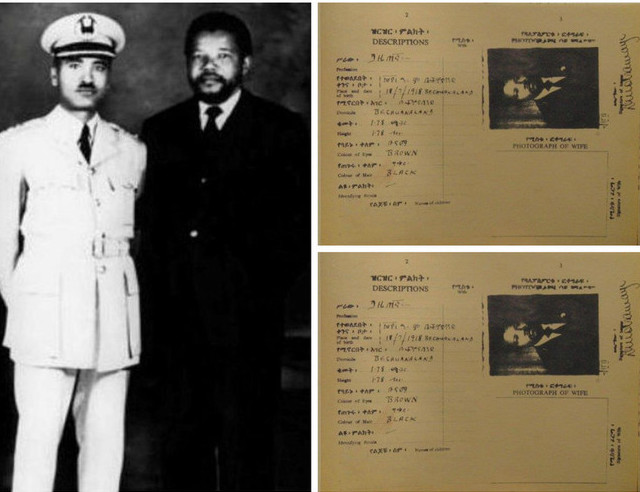


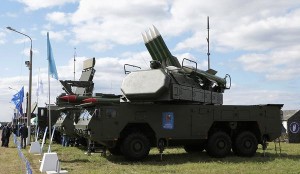

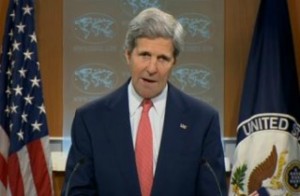













 Deputy commander of Chinese Navy, Wang Hai said the drill manifests the perseverance and ability of marine corps from both countries in counter-terrorism and maintaining peace in the region.
Deputy commander of Chinese Navy, Wang Hai said the drill manifests the perseverance and ability of marine corps from both countries in counter-terrorism and maintaining peace in the region.





































